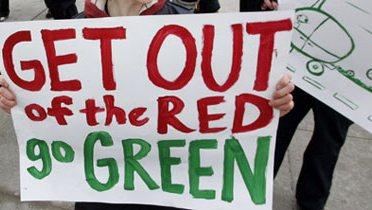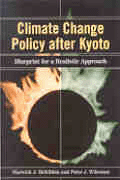Editor’s note: Ted Gayer testified before the Senate Energy Committee that a carbon tax is the most economically efficient way to address climate change. While it might be politically unpopular, he says, it is well worth considering because it helps generate public revenues that can be used to offset economically harmful taxes, and it is less susceptible than cap-and-trade to economically disruptive price volatility.
Chairman Bingaman, Ranking Member Murkowsi, and Members of the Committee, I appreciate the opportunity to appear before you today to discuss the merits of a carbon tax. I commend the Committee for its interest in examining all feasible policy tools to address climate change.
My testimony will make the following points:
1. Either a carbon tax or a cap-and-trade program will result in substantially lower economic costs than command-and-control regulations that mandate technologies, fuels, or energy efficiency standards.
2. Given the uncertainty of the future costs of climate policy, a carbon tax is more economically efficient than cap-and-trade.
3. Carbon allowances in a cap-and-trade program would be susceptible to price volatility. Price volatility causes economic disruptions and complicates investment decisions. It also could lead to political pressure on Congress to repeal or substantially loosen the cap.
4. A carbon tax, in which the revenues are used to offset economically harmful taxes or to pay down our deficit, would substantially lower the cost of climate policy compared to a cap-and-trade program that gives away allowances for free.
5. The currently proposed climate bills rely heavily on offsets to reduce the overall costs of cap-and-trade. Given the substantial potential value of offsets, there is a very real concern that offset integrity will not be maintained. This would result in a weakening of the cap, undermining its environmental benefits.










Commentary
TestimonyOn the Merits of a Carbon Tax
December 2, 2009